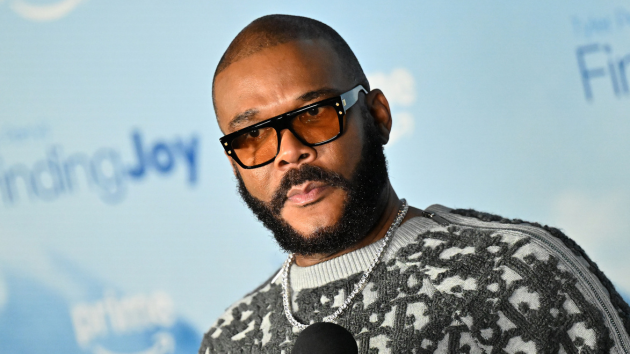How Kamala Harris is navigating her historic run for president in a post-Obama world
Written by ABC Audio. All rights reserved. on August 22, 2024
(CHICAGO) — When then-Sen. Barack Obama took the stage on Aug. 28, 2008, to accept the Democratic nomination for president, he did not mention the historic nature of his run. While he gave a nod to his midwestern middle-class upbringing and his Kenyan roots, the man who became the first Black president of the United States urged voters to unite and declared that the campaign was not about him.
“I stand before you tonight because all across America something is stirring. What the naysayers don’t understand is that this election has never been about me. It’s been about you,” Obama said.
Fifteen years later, when Obama took the DNC stage on Tuesday night, he delivered a resounding endorsement of Vice President Kamala Harris for president, Obama struck a similar tone. He did not explicitly discuss Harris’ racial identity as a Black and South Asian woman or her gender identity like Hillary Clinton did on Monday night when the former Democratic nominee passed the torch to Harris with a reference to breaking the “glass ceiling.”
“Kamala Harris won’t be focused on her problems – she’ll be focused on yours,” Obama said.
Harris, who embarked on a historic run of her own, would become the first female president and second president of color if elected in the 2024 general election.
She has spoken with pride about her Jamaican and Indian heritage, and when she ran for president in 2020, her campaign logo was modeled after that of Shirley Chisholm – the first Black woman to run for president – and when she addressed the DNC as vice presidential nominee, she paid tribute to the women of color in politics who came before her.
It is unclear if Harris will focus on her historic run when she delivers her own acceptance speech at the DNC on Thursday. But according to experts who study race, politics and the White House, Harris has so far not made her identity a central part of her 2024 campaign like Clinton did in 2016 and like Harris did in 2020 and has instead, taken a page out of the playbook that propelled the first Black president to the White House.
“[Like Obama], Harris is letting other people talk about her identity. So you’re putting out the surrogates,” Nadia Brown, a professor of government at Georgetown University who studies Black women in politics, told ABC News. “She’s not shying away from her identity, but she’s not centering this entire race and campaign on her identity.”
But is this a winning strategy?
‘Not more of the same’
Since President Joe Biden dropped out of the race and endorsed Harris last month, there has been a surge in “enthusiasm” for the Democratic ticket that crossed “generational boundaries,” according to Leah Wright Rigueur, a professor of public policy at the Harvard Kennedy School of Government, who studies race and the American presidency. This shift in energy was evidenced by the $310 million fundraising haul that her campaign raised in July alone, Rigueur said.
This surge in enthusiasm is reflected in an ABC News/Washington Post/Ipsos poll released on Sunday, which found that 50% overall say they’d be enthusiastic or satisfied if Harris were elected, compared with 36% who said that about Biden in early 2023.
According to Rigueur, the shift in “energy” is not merely a reflection of voters being excited about the historic nature of Harris’ run, but also indicative of the dissatisfaction with another matchup between Biden and former President Donald Trump – “a race between two really old white guys.”
“I think there is a real kind of excitement about the possibility of what Kamala Harris’ presidency represents,” Rigueur told ABC News. “And I think it’s also fair to say that it’s not simply that she is a woman or that she is Black or that she is Indian that is driving this enthusiasm, but instead the sensibility that … she’s refreshing; that she is new; that she is young, and that she’s not more of the same.”
But on the other hand, Brown said that like Obama, Harris has to strike a “balance” because in working to build the “rainbow coalition” she needs – one that includes independents and Trump-leaning voters – Harris is also navigating racism and the reality that some Americans are “not comfortable” with having a woman of color as president.
While “not more of the same” appeals to some voters, Brown said that for others, “it could be alienating.” This, according to Brown, is part of what informs why Harris has been focused on policy in her wider pitch to battleground state voters and has not centered the conversation around her own identity.
In her stump speeches and campaign ads so far, Harris has touted her middle-class roots – much like Obama did in 2008 – in an effort to connect with voters and make the case that she knows what it’s like to work hard, Brown said.
“She grew up in a middle-class home. She was the daughter of a working mom and she worked at McDonald’s while she got her degree,” a Harris ad that touts her goals to lower health care costs and make housing more affordable says. “Being president is about who you fight for and she’s fighting for people like you.”
According to Rigueur, Harris’ strategy to focus on policy and the people, instead of the candidate, is guided by an understanding that there “is a burgeoning of a movement that sees Kamala Harris as its vehicle, not its endgame.”
“There is something novel about Kamala Harris, and it’s something that she has chosen not to emphasize in her campaign,” Rigueur said. “And I actually think that’s a smart decision [that] she’s chosen not to emphasize it, and she doesn’t need to emphasize it because it’s so apparent – it is the elephant in the room.”
‘The Obama effect’
According to Rigueur, Harris is also navigating a political landscape where “the Obama effect” is at play, where there is “an emotional difference” between new generations who grew up with a Black president, “as opposed to, say, my grandmother, who never thought that she would live to see a Black man become President of the United States.”
“I think this comes out too, in attitudes towards what people think about [when it comes to] change and progress,” Rigueur said.
Brown echoed this notion.
“People put their hopes and dreams, I think, unrealistically, on Obama, because there just wasn’t a large civic understanding about how politics works,” she said. “Just the symbolism of having the first Black president was enough for many people that they didn’t question or look into his policy preferences. And I think the difference today is, yeah, people, know.”
And this is what Brown, who is conducting research at the 2024 DNC this week, found through interviews with protesters about how they feel about a Harris presidency and whether her racial or gender identity is something that inspires them.
Brown said she was “surprised” by how many young people of color expressed that they “don’t care” about Harris’ identity and are instead concerned with her politics, particularly her stance on the Israel-Hamas war.
“There’s a large number of people I’ve been surveying – talking to, here – who really disdain these boxes, right? They don’t want to, you know, identify as voting for a woman because they are a woman, and they want to talk about policy,” Brown said.
According to the latest ABC News/Washington Post/Ipsos poll released Sunday, 38% of Americans say that having a woman serve as president would be a good thing for the country, far more than the 14% who see it as a bad thing. The rest, 47%, say it makes no difference.
The poll also found that support from Black people has swung by 12 points in Harris’ direction, from +60 for Biden in July to +72 for Harris now. But Brown said having a Black candidate is not enough – particularly in a post-Obama world.
“Black voters want more,” she said, adding that Harris’ strategy has shifted and she is “going down a different path” in 2024 than she did during her 2020 presidential campaign by making more efforts to speak authentically to Black voters.
“Being in communities with Black people like going to HBCUs, showing up at these Black civil rights organizing spaces, talking about black maternal health,” she added. “Some of these things are showing it’s not that I’m Black, but I actually am part of these communities.”
Copyright © 2024, ABC Audio. All rights reserved.





